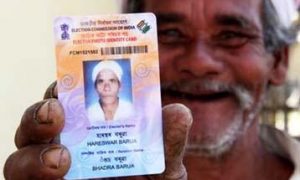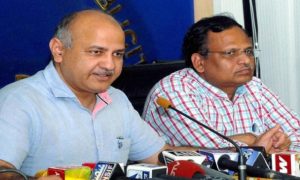Russia terror attack: The attackers stormed Crocus City Hall, a music hall on Moscow’ western edge, which can accommodate 6200 people.
Read More: Pro-Khalistani Groups Seek New Leadership Amidst Turmoil and Infighting, Says New Intel Analysis
Moscow: At least 60 people died and over 100 injured after a group of gunmen sprayed bullets inside a large concert hall in Russia‘s capital Moscow. The attackers also set fire to the concert hall. The brazen attack came days after Russia president Vladimir Putin bolstered his grip on power after a landslide victory in the country’s elections. Prime Minister Narendra Modi has condemned the attack. “We strongly condemn the heinous terrorist attack in Moscow. Our thoughts and prayers are with the families of the victims. India stands in solidarity with the government and the people of the Russian Federation in this hour of grief,” PM Modi wrote on X on Saturday morning.
Read More: Donald Trump’s Campaign Pleads For One Million Donations As Cash Crunch Looms
Terror group Islamic State (ISIS) has claimed responsibility for the attack in a statement posted on affiliated channels on social media. The fate of the attackers is unknown as of now. The roof of the concert hall collapsed due to the fire.
Read More:
Here are top updates on Moscow concert hall attack:
- The attackers stormed Crocus City Hall, a music hall on Moscow’s western edge, which can accommodate 6200 people. Vladimir Putin was informed minutes after the attack.
- Those who died and got injured were in the hall to watch a performance by the Russian rock band Picnic. Some Russian news reports suggested that more could have been trapped by the blaze that erupted after the assailants threw explosives.
- Not much is known about the assailants as of now. However, the authorities claim the attackers were wearing combat fatigues. Repeated volleys of gunfire could be heard in videos posted by Russian media and on Telegram channels. One showed two men with rifles moving through the venue. Others showed up to four attackers, armed with assault rifles and wearing caps, shooting screaming people at point-blank range.
- The guards at the concert hall didn’t have guns. Some Russian news outfits claimed the attackers fled the scene before Russian special forces arrived. The authorities were looking for several vehicles the attackers could have used to flee the spot.
- Islamic State said in a statement that it attacked a large gathering of “Christians” in Krasnogorsk on Moscow’s outskirts, killing and wounding hundreds. The authenticity of the statement is not yet verified.
- IS has been active in Russia over the last few weeks. On March 7, Russia’s top security agency said it thwarted an attack on a synagogue in Moscow by an Islamic State cell. A few days earlier, Russian authorities said six alleged IS members were killed in a shootout in Ingushetia in Russia’s volatile Caucasus region.
- Dmitry Medvedev, deputy head of Russia’s Security Council, warned that if Ukraine’s involvement is proven, those involved will be tracked down and killed without mercy. Ukraine, meanwhile, has denied its involvement. Mykhailo Podolyak, an adviser to Ukrainian President Volodymyr Zelenskyy, said his country “has never resorted to the use of terrorist methods”.
- Earlier this month, the US Embassy in Moscow had asked Americans to avoid crowded places in view of “imminent” plans by extremists to target large gatherings, including concerts. A top US official has denied having “any advance knowledge that we had of this terrible attack.”
- According to news reports, the attackers first opened fire, then threw a grenade and incendiary bombs. The authorities are probing the terror angle and Putin has been receiving constant updates. Russia’s foreign ministry spokeswoman Maria Zakharova said it had been a “bloody terrorist attack”. “The whole international community must condemn this odious crime,” she said on Telegram.
- The US presidency called the attack “terrible” and said there was no immediate sign of any link to the conflict in Ukraine. Ukraine’s military intelligence called the attack a Russian provocation and accused the country’s special services of being behind it.
With inputs from AP, AFP





































